Coast to Coast Cornwall Heroes
We all love a super hero! However, we often take for granted the incredible endeavours that go into making our lives and local habitats safe. Organisations often run by volunteers, day in and day out continue their incredible work which benefits the majority of us.
We feel indebted to those who help to preserve and support the environment here in Cornwall and those who put their lives on the line to save and care for others and animals.
To show our appreciation and as a heartfelt thank you, Coast to Coast Cornwall will make a donation following each event or special occasion that I organise. Clients who book their events, holidays or special occasions with me, can select their preferred Cornish Hero organisation from this Coast to Coast Heroes page and the donation will be made. The list of Coast to Coast Cornwall Heroes below will be continually added to with more worthy active organisations across Cornwall.
Please read on to learn about the Coast to Coast Cornwall Heroes.
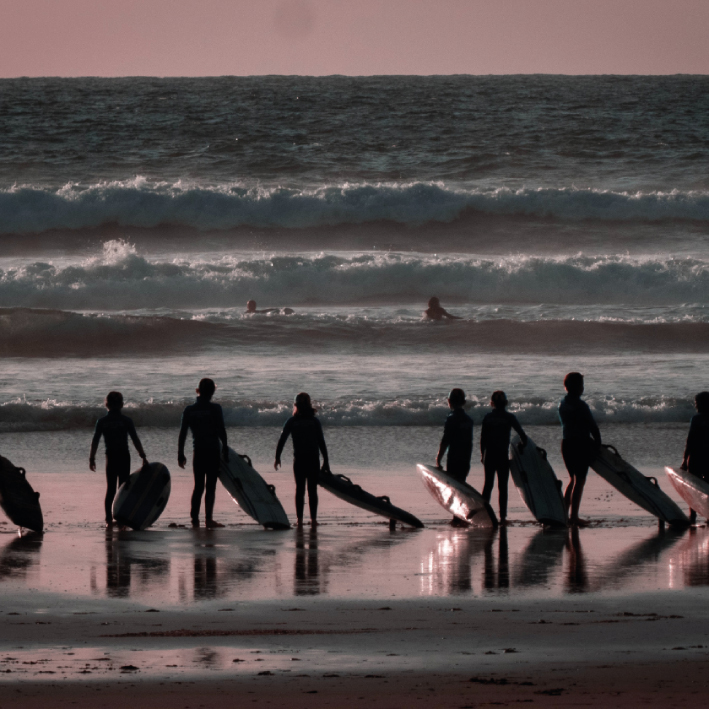
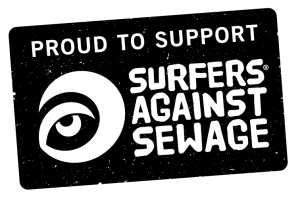
Surf's Up!
The SAS, Surfers Against Sewage, have been protecting our UK shores for over a quarter of a century and although a UK wide organisation, this most active and highly respected organisation originated in St Agnes, Cornwall. Sick of feeling sick from effluent, harmful chemicals and waters polluted by sewage amongst other debris and toxic waste, this active group of surfers took to publicly campaigning and taking to task regulatory authorities and water companies.
High profile campaigns such as demonstrating outside the Houses of Parliament in wetsuits and wearing gas masks to the beach saw their membership numbers explode and they soon became a leading environmental charity nationwide. Cornwall relies heavily on an estimated £64m annually from the surfing economy and with over 400 miles of coastline, these outstanding shores and beaches of the SAS do all they can to continually protect them. Find out more about their continual campaigning and how you can help make a difference on your local shores:
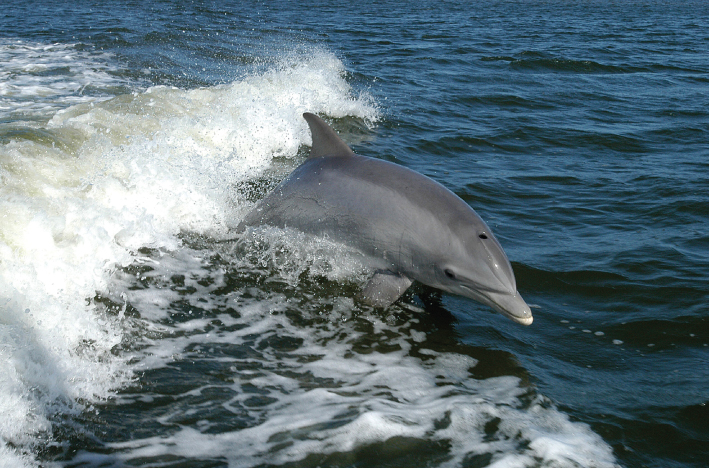
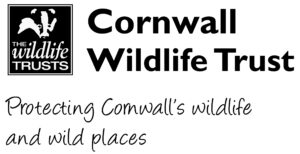
The Wild Wild West
2 staff, 63 volunteers and 1 nature reserve came together more than half a century ago to setup the Cornwall Wildlife Trust. Today there are 57 nature reserves which cover over 5,500 acres of Cornwall’s landscape so as you can imagine the numbers of caring pairs of hands have dramatically increased too!
The Cornwall Wildlife Trust is a registered charity and as such, has clear and defined goals:To safeguard Cornwall’s habitats and associated wildlife. From the very first days, landowners and farmers were eager to benefit from their expertise but the CWT did not have an official base for almost 20 years. These days it can be found at Allet and there are more than 100 business members all supporting the work of protecting the unique environment that Cornwalls wildlife offers.
Read more about the enduring work of the Cornwall Wildlife Trust here:
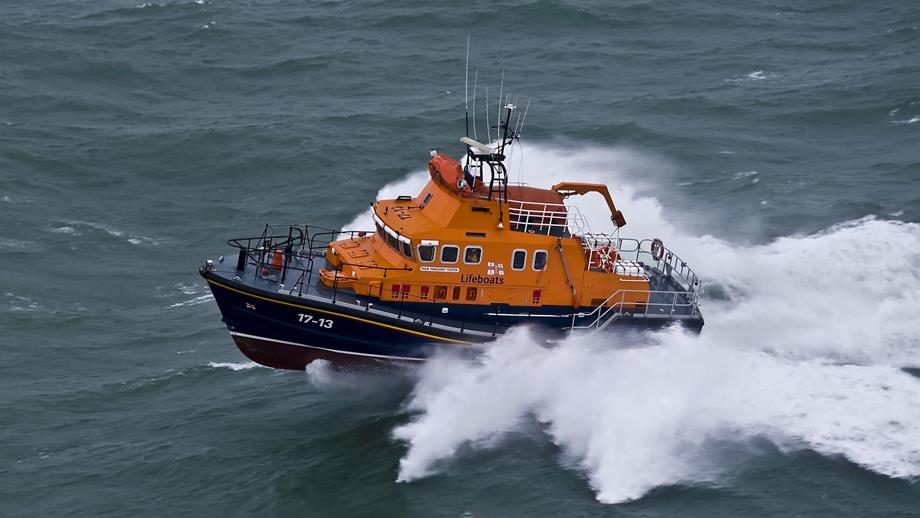
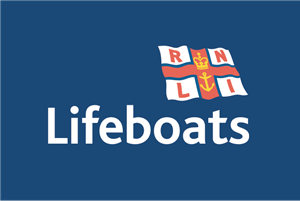
Saving lives on the ocean waves
The RNLI charity saves lives at sea. It’s volunteers provide 24-hour search and rescue service around the United Kingdom and Republic of Ireland coasts. The RNLI operates over 230 lifeboat stations in the UK and Ireland and has more than 150 lifeguard units on beaches around the UK. The RNLI is independent of Coastguard and government and depends on voluntary donations and legacies to maintain it’s rescue service. Since the RNLI was founded in 1824 it’s lifeboat crews and lifeguards have saved over 139,000 lives.
RNLI lifeboat stations in Cornwall: 14
RNLI Stations and lifeboats:
- Bude – D Class inshore lifeboat George Bird
- Port Isaac – D class inshore lifeboat Spirit of the PCS RE II
- Rock – D class inshore lifeboat Rusper
- Padstow – All-weather Tamar class Spirit of Padstow
- Newquay – D class inshore lifeboat Valerie Wilson & Atlantic 85 B class lifeboat Gladys Mildred
- St Agnes – D class lifeboat XKalibur
- St Ives – All-weather Shannon class lifeboat Nora Stachura & D class lifeboat Colin Bramley Parker
- Sennen Cove – All weather Tamar class lifeboat City of London III & D class lifeboat Spirit of the RLC
- St Mary’s – All weather Severn class lifeboat The Whiteheads
- Penlee – All weather Severn class lifeboat Ivan Ellen & Atlantic 75 B class Paul Alexander
- The Lizard – All-weather Tamar class lifeboat Rose
- Falmouth – All weather Severn class lifeboat Richard Cox Scott & B class lifeboat Eve Pank
- Fowey – All-weather Trent class lifeboat Maurice and Joyce Hardy & D class lifeboat Olive Two
- Looe – B class lifeboat Alan & Margaret & D class lifeboat Ollie Naismith
There are Hundreds of volunteers in Cornwall. From volunteer lifeboat crew members, to lifeboat operation managers and lifeboat launching authorities, to fundraisers, youth education volunteers and shop workers. The RNLI has so many fantastic dedicated volunteers who give up their time to ensure our lifesaving work continues every day around the coast of Cornwall and beyond.
In 2015 RNLI volunteer lifeboat crews from the charity’s 14 stations in Cornwall launched 461 times and assisted 442 people, saving 33 lives and spending 3,536 hours at sea. 167 of these services were in the dark.
RNLI lifeguards run patrols on 58 beaches across Cornwall throughout the season. Lifeguard cover will start on some of the county’s busiest beaches in Easter and run through until the end of October.
If you’re heading to the beach this summer, spare a thought for safety. The RNLI is urging anyone planning a trip to the beach and, particularly, anyone thinking of going into the water, to choose a lifeguarded beach and swim in the area between the red and yellow flags, which is the area most closely monitored by the RNLI lifeguards.
To help the beach-going public stay safe, the lifesaving charity is offering some essential beach safety tips to make sure people remember their summer holidays for the right reason.
- Always swim at a lifeguarded beach
- Swim between the red and yellow flags
- Never swim alone
- Know your beach safety flags
- Never use inflatables in strong winds or rough seas
- If you get into trouble, stick your hand in the air and shout for help
- If you see someone else in trouble, tell a lifeguard. If you can’t see a lifeguard call 999 or 112 and ask for the Coastguard
- Find out about the beach you’re going to before you visit
- Check tide times before you go
- Read and obey local hazard signs
For more information or to find your nearest lifeguarded beach visit www.rnli.org.uk/beachsafety
RESPECT THE WATER
British and Irish waters are dangerously unpredictable. Over 200 people accidentally die each year around our cost. We want to change this. The RNLI has a goal to halve the number of coastal drownings by 2024. Respect the water is the RNLI’s national drowning prevention campaign and will play a key role in helping us to achieve this.
A charity registered in England and Wales (209603) and Scotland (SCO37736).
Charity number CHY 2678 in the Republic of Ireland.
www.rnli.org
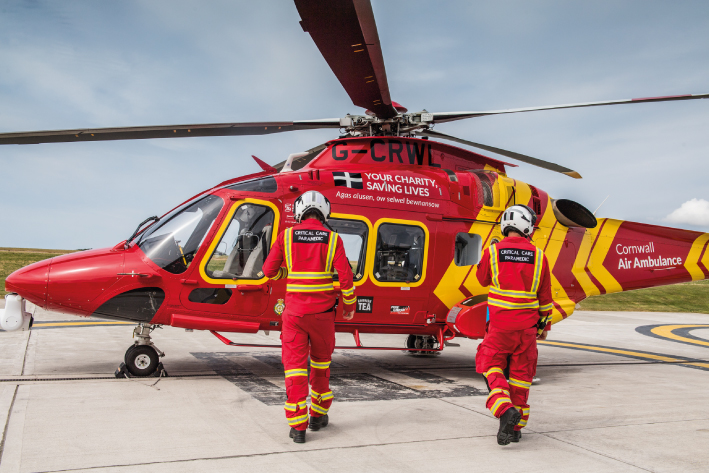
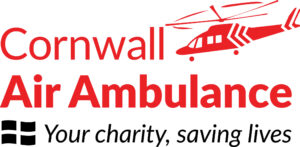
Flying saviours
Around 60% of the missions are in response to medical incidents and the remainder are due to severe traumatic injuries, such as falls from height and road traffic collisions. One in four missions are for patients suffering cardiac arrest, while one in ten are to help children.
Taking to the skies in 1987, Cornwall Air Ambulance was the first air ambulance in the UK. It has now completed more than 31,000 missions, saving countless lives. Given the county’s isolated beaches, rural settlements and challenging road networks, Cornwall Air Ambulance is considered a lifeline by residents and visitors alike.
Our helicopter
Air Operations Officer, Steve Garvey, explains the difference the new aircraft will make to the service the critical care team can provide.
“The faster we can reach a patient and treat them, the better their chances of survival are. As paramedics and doctors, we talk about patient outcomes a lot. That basically means we want the people we treat to make the best recovery possible. The faster AW169 will allow us to reach patients more quickly. We are in turn able to start their treatment earlier and improve that patient’s outcome.
The greater space and access to patients is a benefit of the new aircraft. The scene of an emergency can be a very difficult place to treat a critically ill or injured person. Whether we land at the aftermath of a car accident or find ourselves treating someone on a busy beach, the environment can cause additional stress to a patient. Removing them from the public gaze into a warm, safe environment so we can assess and treat them in a cabin with enough space to do so will make a huge difference.
The AW169 gives our team 360-degree access to the patient with a stretcher down the middle, whereas in our current aircraft we can only treat them from one side. It may sound simple, but having the extra space to allow two crew members to work on a patient will greatly improve the care we can give.”
Emergencies don’t stop when the sun goes down, neither do we
The helicopter and crew can fly in darkness using a specialist Synthetic Vision System, powerful searchlights and advanced mapping systems. The AW169 has some of the most advanced navigation capabilities in the industry.
This equipment allows the crew to be on call in the hours of darkness when the aircraft is online, 365 days a year.
Rapid response by road
The Cornish weather can be a challenge for the helicopter. Low cloud, fog, ice, high winds and heavy rain mean that the helicopter has to be grounded until conditions improve.
But that doesn’t mean that we stop responding to critical emergencies. The crew use two rapid response vehicles, an extension of what is carried in the helicopter, with the same specialist equipment that you can find in a hospital A&E.
The crew bring the hospital to the patient and the rapid response vehicles enable the highly skilled paramedics to reach people in their hour of need, regardless of the weather.
www.cornwallairambulancetrust.org
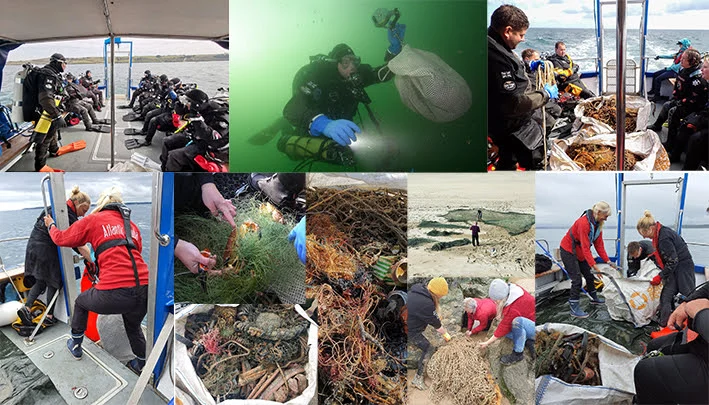
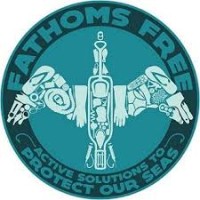
Clearing the sea beds
Fathoms Free – Who We Are and What We Do
We are a group of volunteer Conservationists who refuse to simply stand by and watch, whilst our seas turn into uninhabitable dumping grounds.
The Abandoned, Discarded and Lost Fishing Gear (ADLFG also known as Ghost Gear) and general marine debris, especially plastics, are some the greatest threats our planet has ever encountered. If the seas can no longer sustain life, neither can the planet. The problems posed by these threats are as diverse as the techniques used to overcome them. Divers are in a unique position to assist in tackling this threat.
The group is made up of people from various backgrounds, agencies and organisations. We are supported by The National Trust, who own some of our finest coastline. They help us to access the more remote dive sites, that would otherwise be neglected.
Both diving and non-diving volunteers are equally as important to us. So if you would like to take a proactive step towards protecting our seas, please join our group.
Fathoms free is a UK registered charity – number 1192613
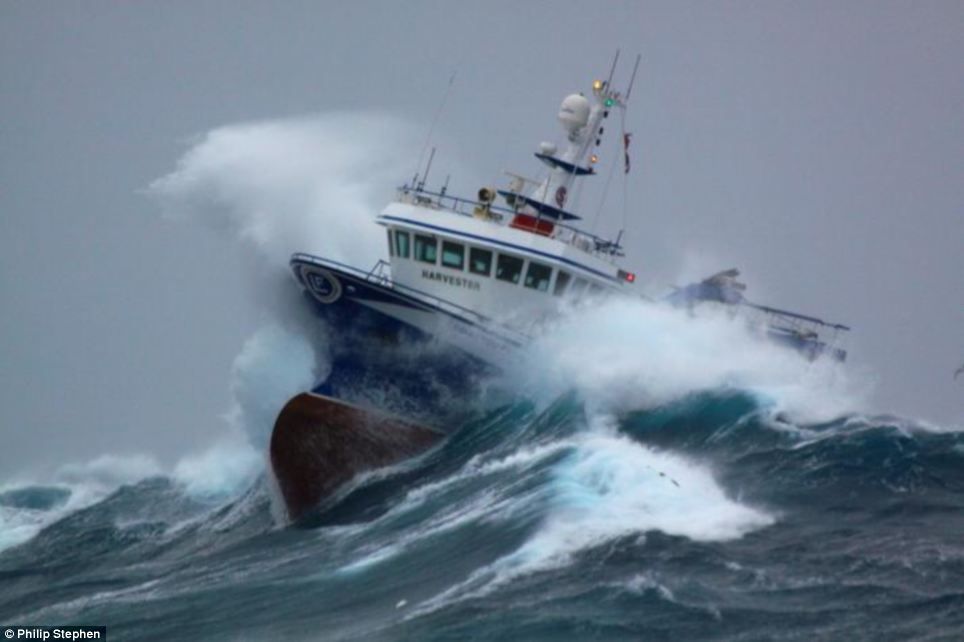
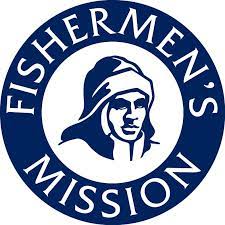
Supporting our Fishermen
‘We provide emergency support and practical care to fishermen and their families.’
The Fishermen’s Mission reaches out to both active and retired fishermen by providing practical, spiritual and financial support – as well as a vital emergency response service.
We’re the only national charity that works solely to help fishermen and their families, and for over 130 years of service, the Fishermen’s Mission has stayed true to our Christian calling with a strong tradition and proud heritage.
From having a heart to heart over a cuppa to responding when a fisherman is lost at sea, we’re the vital port of call for fishermen and their families when they need us most – 24 hours a day, every day of the year.
Here are just some of the ways in which we supported the UK’s fishing communities last year:
Helped 152 children of Fishermen
Last year we visited 4,861 fishing boats and had meetings with 2,452 Fishermen
8,054 welfare visits
221 fishermen helped after an emergency at sea
98,795 miles traveled delivering our services
Helped fishermen access grants totalling £1.1 million.
The Fishermen’s Mission does not receive government funding or lottery money. We depend on voluntary donations and legacy giving to continue our vital work.
We always use our resources wisely, ensuring we will be here to help for many more years to come. That’s why for every pound given, we spend 88p on providing our services.
Our work would be impossible without our friends and the public. So if you’d like to give a gift to the Fishermen’s Mission, please visit our Donate page. Or if you’d like to know more about what we do, please visit the Our work page.
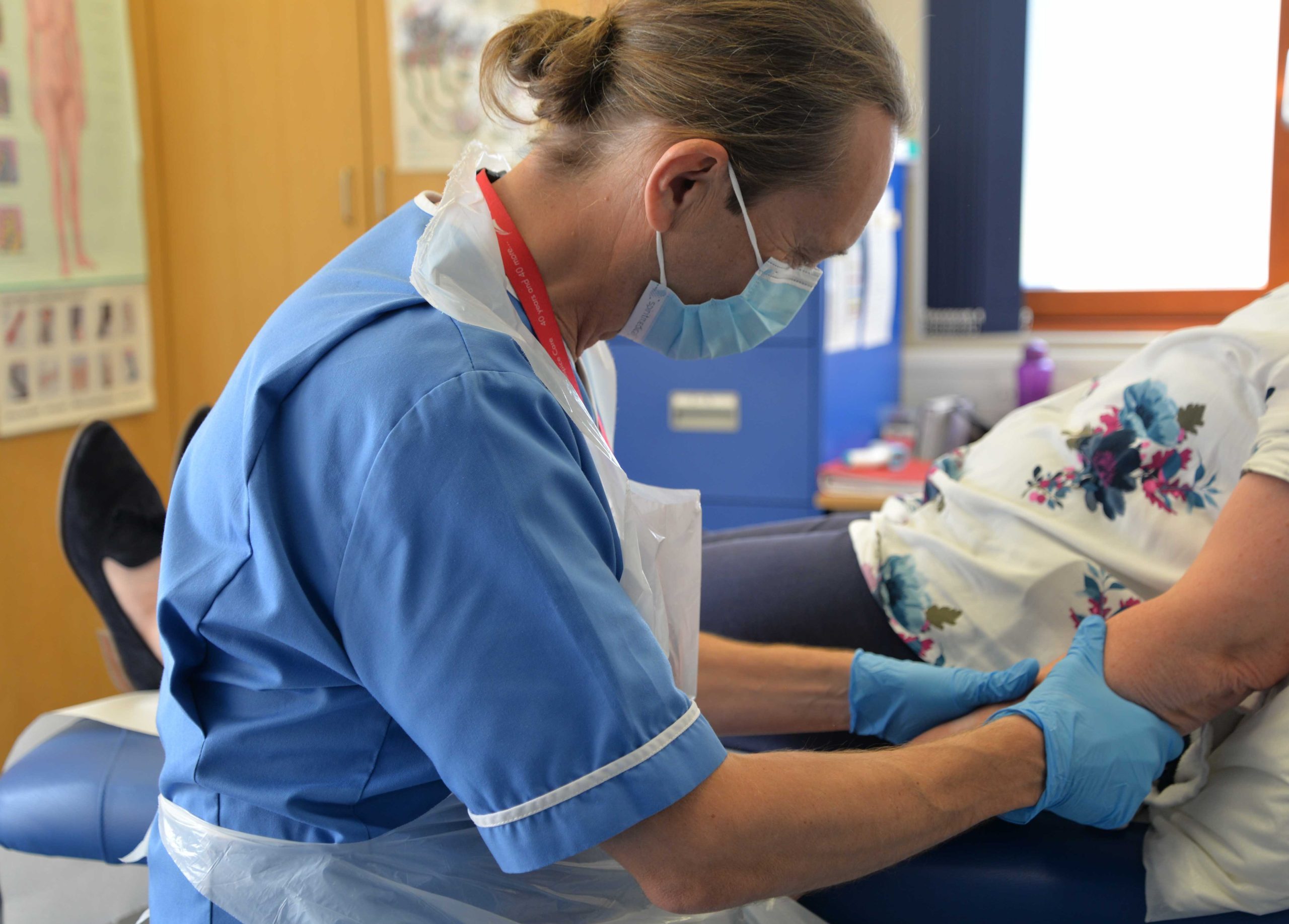
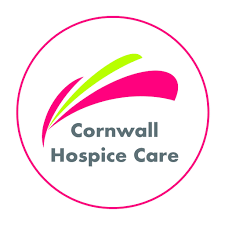
Care for those with a terminal illness
This is what we do:
Questions we are often asked are;
“What goes on inside a hospice?”
“How do you raise the money to care for people, at no cost to them?”
“How important are your shops?”
“What makes the care at the hospices special?”
‘This is what we do’ is an insight into our charity over the last year that endeavours to answer these questions and more. You can read stories from around our charity showing how we go the extra mile and how people go the extra mile for us.
Our resilience and revival:
This report was for the previous year (2020/21) and captured the story of the toughest period in our charity’s 40-year history. Far from celebrating our Ruby Anniversary, we faced dark times. Covid-19 forced us to close shops, stop our fundraising activities and concentrate on keeping our key workers safe and our hospices open 24/7 for those end of life patients who needed us. In this detailed and moving account, we review the extraordinary issues we faced and the amazing way in which our staff and volunteer teams fought back in the financial year 2020/21.
Previous Editions:
Previous versions of ‘Our Impact’, our annual publication are available below. They show the work we have done across the county and the many ways in which we make a difference to terminally ill patients and their carers, family and friends.
Our 2019-20 version was titled ‘This is what it takes’ and looked at what it takes to deliver our care. It features Keith and Pat’s story.
Our 2018-19 edition included a range of heart-warming stories, including that of broadcaster and writer Judi Spiers who is an Ambassador for adult hospice care and for Cornwall Hospice Care in particular. You can watch a short film she made with us by clicking on the link below.
www.cornwallhospicecare.co.uk
Registered Charity Number 1113140
